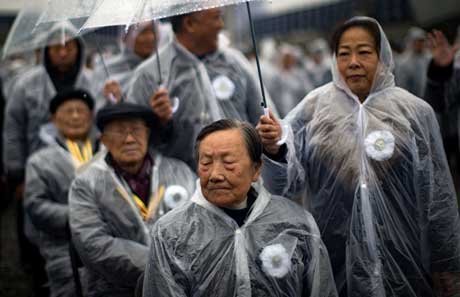Lab drug 'not cause of US deaths'
Powerful opioid is variant of chemical that killed musician Prince in April
China hasn't blacklisted carfentanil, a synthetic opioid, as a controlled substance, thus it can still be legally produced by qualified chemical companies, according to a senior official at the Ministry of Public Security's Narcotics Control Bureau, who declined to be named.
He spoke to China Daily in an exclusive interview, responding to recent media reports in Western countries such as the United States and Canada alleging that China-exported carfentanil had caused a rise in overdose deaths there.
"There is no convincing evidence or scientific statistics to show that the China-exported substance has been widely abused in the US or Europe, leading to deaths there," he said.
Carfentanil, one of the most potent opioids known, is a variant of fentanyl, a prescription painkiller that killed US musician Prince earlier this year. US experts said it's 100 times stronger than fentanyl and thousands of times more deadly than heroin.
An National Public Radio report on Sept 2 said carfentanil is being sold on streets in the US, either mixed with heroin or pressed into pills that look like prescription drugs.

That has deadly consequences, it said. The US Drug Enforcement Administration said much of the carfentanil being sold on the streets is illicitly imported from China, without giving further details.
"It is mere speculation, as there is no solid evidence to prove the source, the exact number of victims, or the severity of the problem in these countries," the official said. "There have only been some individual cases of drug addicts in the US dying from using it."
However, he added that the ministry would further tighten management and control over such substances.
"It stimulates the human nervous system and does harm to people's health, while having no medical value," he said.
Melvin Patterson, a staff coordinator with the congressional and public affairs department at the US Department of State, told China Daily in an email that the DEA and China have a sound working relationship.
"The DEA has offices in China and the agents there do a great job working with Chinese law enforcement officials to prevent illegal substances from being shipped to the US," Patterson said.
Facing public health and social stability challenges caused by narcotic and psychotropic drugs, widely known as "lab drugs", the Chinese government issued a regulation last year to improve control and surveillance of such substances, according to Wei Xiaojun, a senior official at the China National Narcotics Control Commission.
"Such 'lab drugs' have become the second-largest abused substance, following marijuana, in Europe and North Africa," he told China Radio International last year.
Under the regulation, China added another 116 synthetic drugs to the controlled-substance list, including acetylfentanyl, a less potent fentanyl variant, previous reports said.
Once "blacklisted", the manufacture, sales, transportation, import/export, stocking and use of a substance is strictly prohibited and severely punished.
Xiao Yingxia, a division director at the Ministry of Public Security's Narcotics Control Bureau, told CRI that some of the newly added substances had, so far, not been found to be abused with in the country.
"But they had been found being produced and marketed in China, and were confirmed to be leading to abuse and overdose deaths abroad," Xiao said, adding that the move to blacklist such substances highlights the global cooperation and responsibility adopted in fighting such issues.
Zhu Qian, an associated professor of the pain medicine department of the China-Japan Friendship Hospital said abuse or overdose of fentanyl can lead to breath depression or even death.
Currently, fentanyl is used clinically as a powerful painkiller for surgery anesthesi or among cancer patients.
"It's under strict control and requires the red colored narcotic drug prescription," he said.
But Carfentanil is usually used as big animal tranquilizers, not for humans, he added.





















